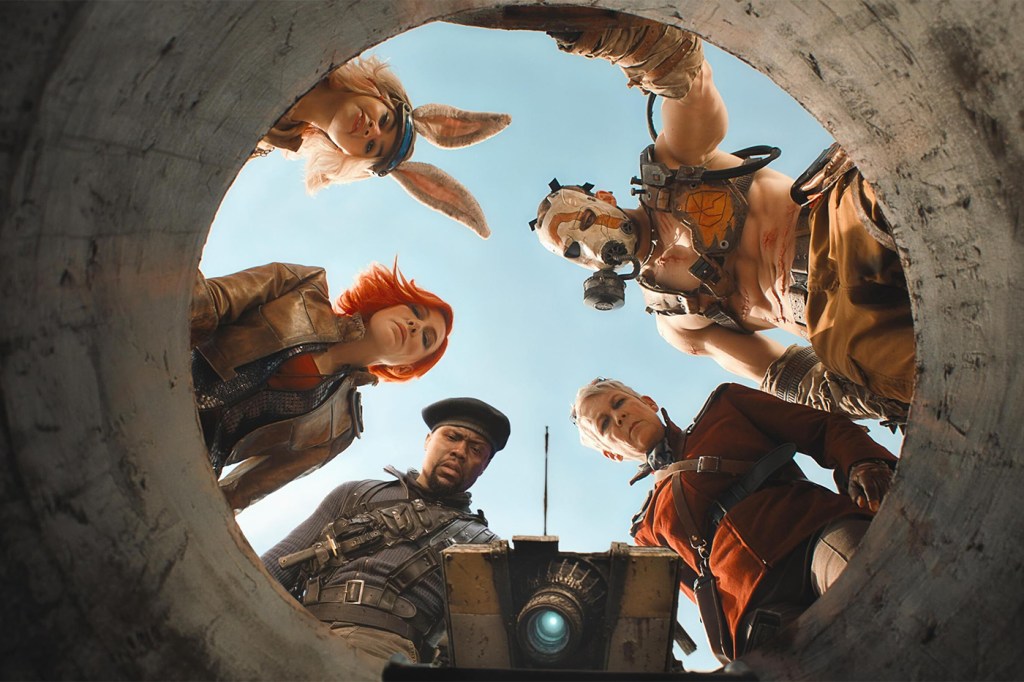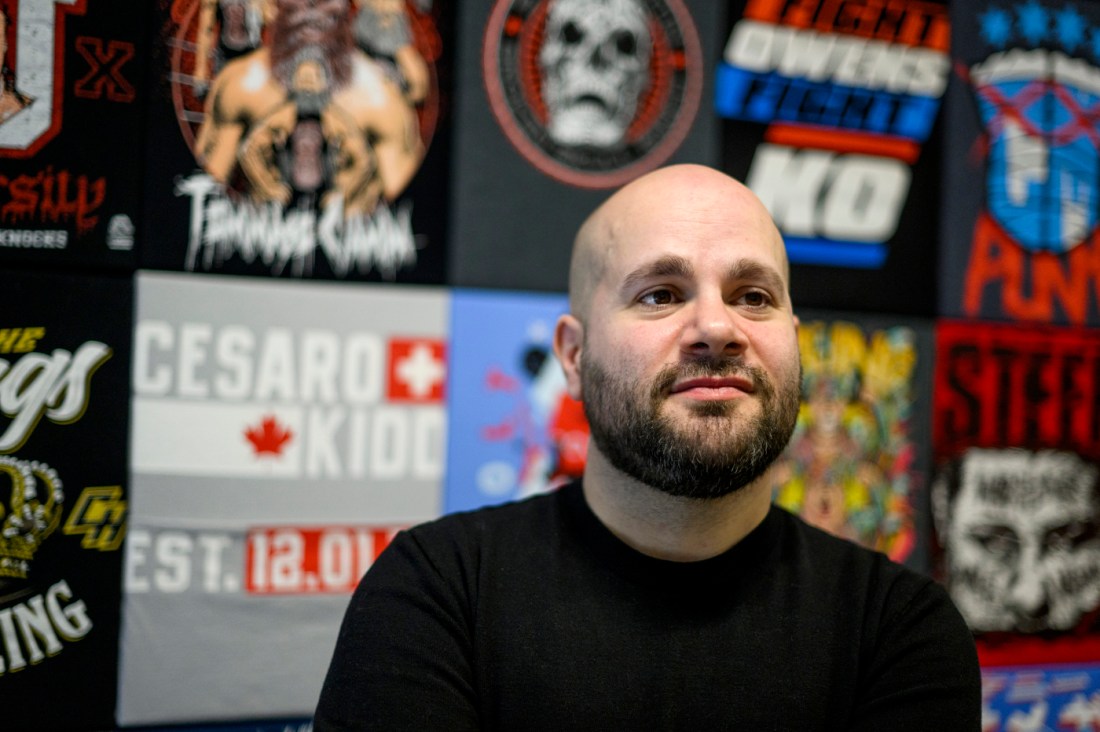Will ‘Borderlands’ end Hollywood’s video game curse? It may already be broken, expert says
Video games have become big business in Hollywood, but it takes more than just a popular brand to successfully adapt a videogame for film and TV, a Northeastern University pop culture expert says.

“Borderlands” is the latest video game to make the leap from living rooms to the big screen with a big-budget, movie-star-filled adaptation hitting theaters this week.
Coming hot on the heels of popular and critically acclaimed TV adaptations like “Fallout” and “The Last of Us” and box office juggernauts like “The Super Mario Bros. Movie,” “Borderlands” arrives at a time when Hollywood is embracing video games like never before. But it hasn’t always been this way. For decades, Hollywood faced what many still call the “video game curse,” the idea that video game adaptations were more often than not commercial failures, creative failures or both.
With yet another big-budget adaptation on the horizon, it’s worth asking, is the video game curse finally broken?
Steve Granelli, an associate teaching professor of communication studies at Northeastern University who specializes in pop culture and fandom, says the curse is a thing of the past –– but that doesn’t mean every video game adaptation, just like any Hollywood project, is going to be a home run.
The idea of the video game curse came from a time when video games were less focused on telling stories that might lend themselves more naturally to film and TV, Granelli says. Films like “Super Marios Bros.” and “Mortal Kombat,” both released in the ’90s, were based on games that, by design, had little in the way of narrative.

“There’s this shift in video games and video games becoming part of popular culture where it stops being something you do and starts being something you experience,” Granelli says. “You start getting longer, more character-driven, story-driven games.”
Even when games started to become more narratively focused, Granelli says, Hollywood viewed the industry as an intellectual property factory, not as a source of new stories. More recently, Hollywood has started to crack the code, combining the right creators with the right video game property in the most appropriate medium for the story they want to tell.
“It was just, ‘Let us see how we can take this experience playing a game that people like and put it on the screen.’ That formula is broken,” Granelli says. “That part doesn’t work, and nobody ends up satisfied with it. If it means, ‘Let’s use this IP to tell a story,’ that’s where the magic lies, but that type of story and that type of transition being done well is so rare.”
However, it’s become less and less rare in recent years, partly because Hollywood and the gaming industry have become increasingly intertwined. Now, not only are big-budget games more cinematic, but the studios and even the creative leads behind these games are deeply involved in the production of adaptations.
Sometimes, in the case of Amazon’s “Fallout,” the games studio and studio head are producers on the project and involved in providing feedback. In a case like “The Last of Us,” HBO’s Emmy-winning adaptation of Naughty Dog’s hit post-apocalyptic video game, one of the creative leads and writers on the game, Neil Druckmann, also wrote and directed episodes of the show.
Not every adaptation needs to have someone as involved as Druckmann, but it’s an improvement from the era of Hollywood taking video game properties and stripping them for parts to be used in what Granelli says were often blatant cash grabs.
“The idea of the video game curse came from a very predatory model of Hollywood taking from video games, and there wasn’t really a symbiotic relationship between the two,” Granelli says. “A more transactional and symbiotic relationship between the video game industry and Hollywood is what produces something that is more pleasing to audiences and then maybe more pleasing to critics.”
Granelli also notes the most recent and successful video game adaptations have all been on TV, for good reason.
“You don’t have to tell the entire story that the game tells in 40 hours in 90 minutes or two hours. Take your time. Involve some of the nuance,” he says.
“You’re not forced to cut out or collapse characters,” he adds. “You actually have the option of letting a talented screenwriter or director take a couple of characters or something we loved about the game and explore that because maybe the game didn’t have the option of doing that.”
“The Last of Us” earned acclaim not only as a faithful adaptation of the source material but for its willingness to take two minor characters in the game, survivors Bill and Frank, and devote an entire episode to their story that was never told in the game.
Featured Posts
Granelli says that is one way the best video game adaptations have managed to avoid a problem inherent to translating games to a different medium: the loss of interactivity.
It’s one of the things that separates video games as a medium. Without that, it matters even more how filmmakers choose to leverage the things that make film and TV different from video games, like the ability to inhabit the perspective of a wider cast of characters or a stronger focus on dialogue.
The creators behind “Fallout” opted for a different approach. A darkly comic post-apocalyptic roleplaying game series, “Fallout” is built around the player’s ability to make choices that impact the story. When translating it to the screen, the filmmaking team didn’t retell a story from the games but created an entirely new story that retained the game’s unique retro-futuristic world and signature sense of humor.
“We’re not seeing our experience distilled into something; we’re seeing our experience expanded and our fandom expanded,” Granelli says.
Will “Borderlands” continue to break the video game curse? Granelli isn’t so sure.
“Borderlands” is based on a first-person shooter series known for its wacky, juvenile sense of humor. It doesn’t carry the same weight –– or pressure –– as something like “The Last of Us,” which has the dramatic heft of an HBO prestige drama.
“It has a low bar to clear,” Granelli says of “Borderlands.” “If it’s entertaining, then people are going to be invested in that. … And if it does [box office] numbers, which it absolutely will, then I think that will be looked at as a success. But I don’t think it’s going to signal any trend.”
In a way, that’s a sign of progress for video game adaptations. A forgettable or even average one is no longer the standard, but it’s also not enough to sink the entire idea of video game adaptations for Hollywood studios. The next video game story to tell, on the big or small screen, is just around the corner. There’s always another level.










